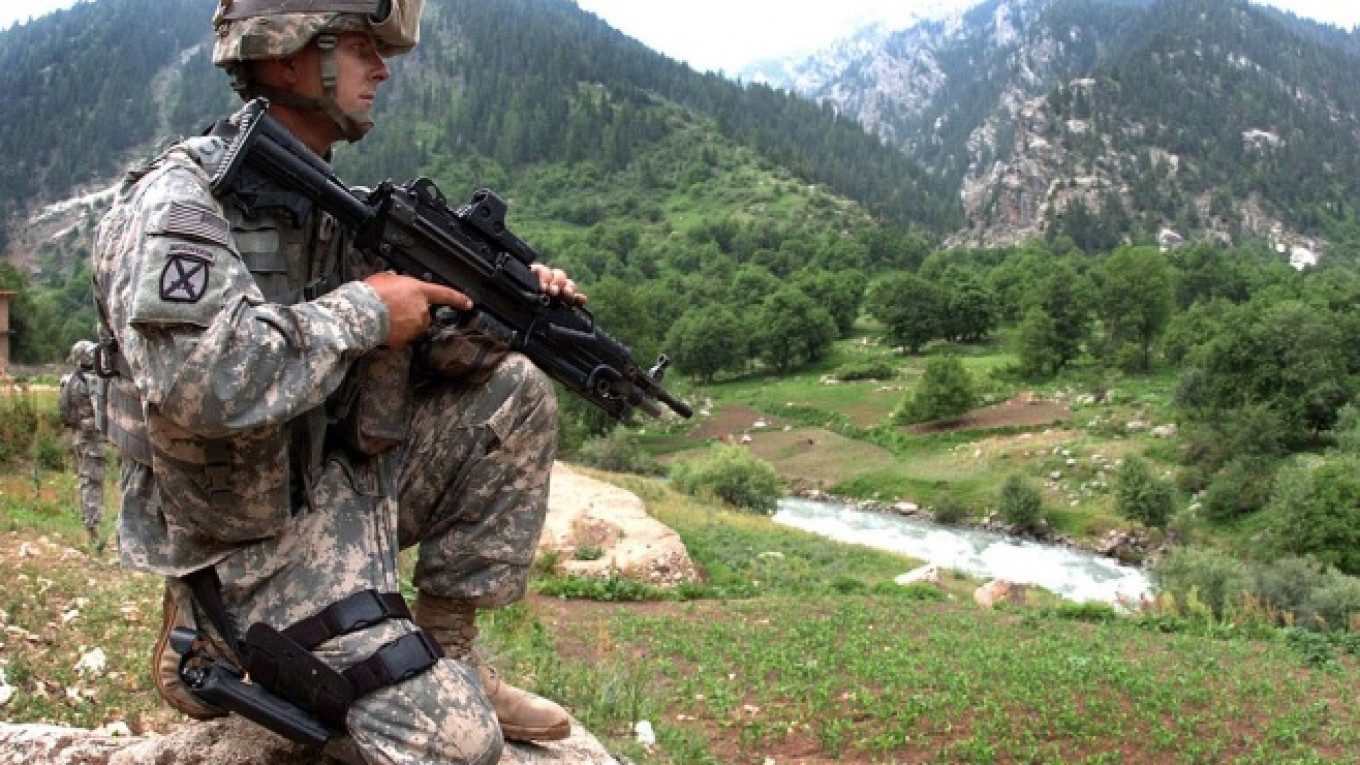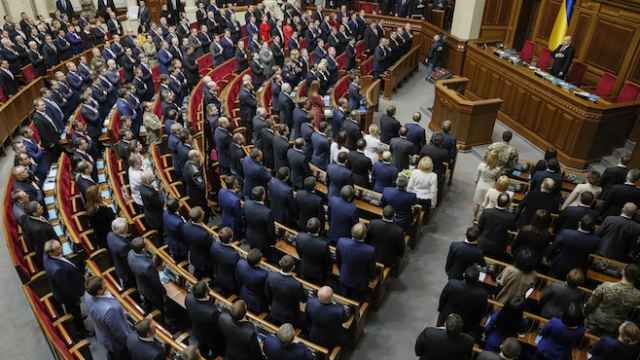Russia said on Wednesday NATO was turning Ukraine into a "frontline of confrontation" and threatened to sever remaining ties with the Atlantic military alliance if Ukraine's hopes of joining it were realized.
The Kiev parliament's renunciation of Ukraine's neutral status on Tuesday in pursuit of NATO membership has outraged Moscow and deepened the worst confrontation between Russia and the West since the end of the Cold War.
"NATO countries pushed Kiev to this counterproductive decision, trying to turn Ukraine into a front line of confrontation with Russia," Deputy Defense Minister Anatoly Antonov told the Russian news agency Interfax.
"If this decision in the future takes on a military character [accession to NATO], then we will respond appropriately. Then there will be a complete severing of ties with NATO, which will be practically impossible to repair," Antonov said.
It is likely to take years for Ukraine to meet the technical criteria for accession to NATO and, even then, there is no certainty that the alliance is ready to take on such a political hot potato.
Yet Russia has made clear it would see the NATO membership of such a strategic former Soviet republic with a long common border as a direct military threat.
A NATO official, who asked not to be named, said it was solely up to Kiev to decide on its foreign policy.
"Should Ukraine decide to apply for NATO membership, NATO will assess its readiness to join the alliance in the same way as with any candidate. This is an issue between NATO and the individual countries aspiring to membership," the official said.
NATO has already boosted its military presence in eastern Europe this year, saying it has evidence that Russia orchestrated and armed a pro-Russian rebellion in eastern Ukraine that followed the overthrow of a Kremlin-backed president in Kiev.
Moscow denies supporting the rebellion, and is currently trying, along with Kiev and the rebels, to renew efforts to find a political solution to the crisis in eastern Ukraine.
A so-called "contact group" is expected to meet in Minsk on Wednesday to try to reinforce a shaky ceasefire and de-escalate the conflict, in which more than 4,700 people have been killed.
A truce agreed in September has been regularly flouted by both sides, but violence has lessened significantly in December.
The rebellion began shortly after Russia annexed the Black Sea peninsula of Crimea from Ukraine in March.
A Message from The Moscow Times:
Dear readers,
We are facing unprecedented challenges. Russia's Prosecutor General's Office has designated The Moscow Times as an "undesirable" organization, criminalizing our work and putting our staff at risk of prosecution. This follows our earlier unjust labeling as a "foreign agent."
These actions are direct attempts to silence independent journalism in Russia. The authorities claim our work "discredits the decisions of the Russian leadership." We see things differently: we strive to provide accurate, unbiased reporting on Russia.
We, the journalists of The Moscow Times, refuse to be silenced. But to continue our work, we need your help.
Your support, no matter how small, makes a world of difference. If you can, please support us monthly starting from just $2. It's quick to set up, and every contribution makes a significant impact.
By supporting The Moscow Times, you're defending open, independent journalism in the face of repression. Thank you for standing with us.
Remind me later.






